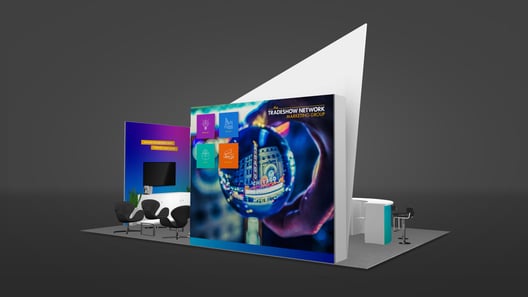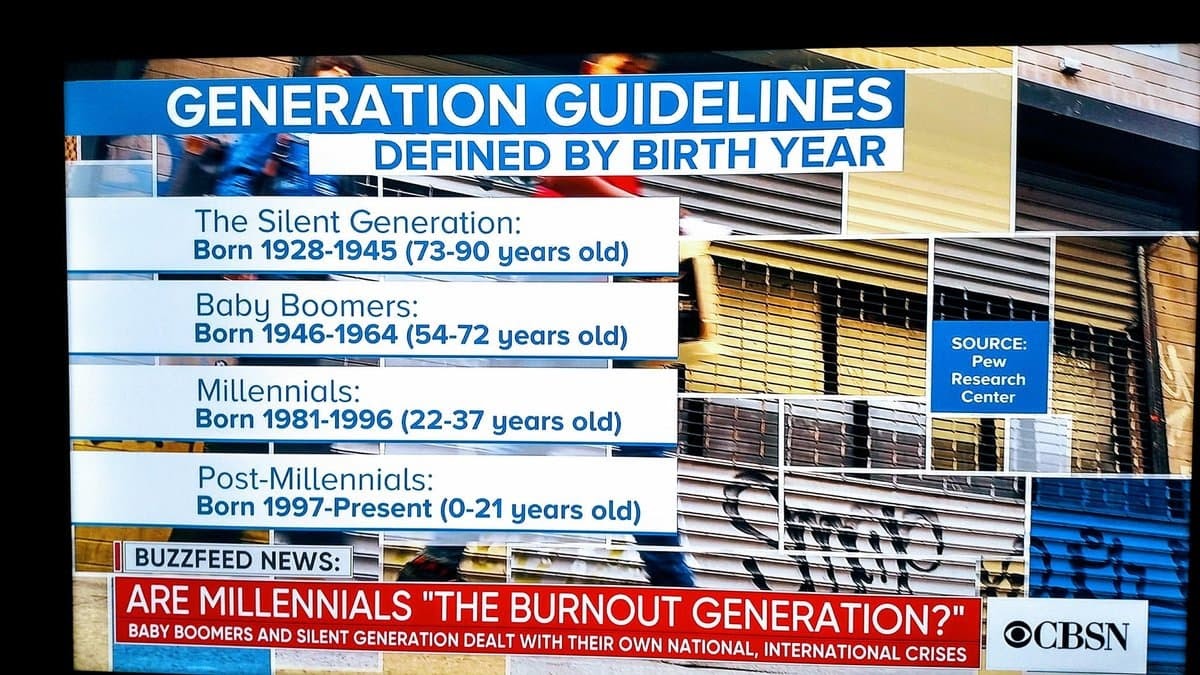They all buy stuff. However, they don't all buy the same way. Each generation has its own collective consumer tendencies. This article will offer some perspective and guidance on how to tap into them. Here, we'll learn how to cater a sales strategy to the four generations currently wielding the most purchasing power in the United States — Baby Boomers, Generation X, Millennials, and Generation Z.
Sales Tips for Baby Boomers
In 2018, an estimated 73 million Boomers were living in the United States controlling roughly $2.6 trillion in spending power. By and large, your average

Boomer is at least close to retirement, and by 2030, all of them will be over 65.
Even though they still spend the most money out of any generation, marketers still allocate considerably less money towards appealing to them than they do to Millennials. That means your business stands to gain a lot from understanding them as consumers and potentially tailoring a sales strategy to their needs and interests.
The first thing to note is that, in spite of how and when they were raised, they're still very technologically adept. It could be easy to conflate what could be described as Boomers' more "traditional" upbringing with "traditional" buying habits. It might stand to reason that a generation that grew up without the Internet might be more inclined to shop in-person than online — but research shows otherwise.
A study by Oracle NetSuite, Wakefield Research, and The Retail Doctor found that just 27%
of Boomers found the current brick and mortar retail environment inviting. While Visa estimates that roughly 40% of credit spending for its customers aged 60-69 is conducted online — only 0.3% less than the national average. Another study by Deloitte found that 53% of Boomers prefer shopping online over physical stores.
That's a trend worth staying mindful of. If you're trying to sell to Boomers, establishing and maintaining a solid ecommerce infrastructure might be your best bet.
Boomers are privy to the capabilities of the Internet age, so the question isn't if Boomers are online — it's where you can reach them. And social media is a good place to start.
It's estimated that 82.3% of Boomers have a social media presence. That's important to bear in mind when tailoring a sales strategy to that generation. The most popular online hub for boomers is Facebook — by a wide margin. There are actually more Facebook users aged 55 and above than users between ages 13 and 24.
Having a solid Facebook presence will help you get to Boomers. That means setting up a Facebook page for your business. Give them a way to interact with you over the channel, and be sure to engage with them when they do.
Taken all together, this information shows that a successful Boomer-oriented sales strategy can lean heavily on ecommerce and be supplemented by an active, inviting Facebook presence to bring Boomers in, gain their trust, and keep them interested in your product or service once you have their attention.
Sales Tips for Gen X
Of all the generations accounted for in this article, it seems like Gen X — born between 1965 and 1979 — gets glossed over the most. The fact that CBSN flat out left them out of an infographic defining generations by birth year speaks to that.

Source: CBSN
But to paraphrase the lyrics of the Simple Minds' song that plays out the end of The Breakfast Club — arguably the most "Gen X" movie ever filmed — don't you forget about them.
At this point, Gen Xers are in their late 30s to early 50s, so they tend to be in their highest-earning years. That also means they're likely instilled with a lot of decision-making power — on both household and company levels.
Since they're still actively working, far along in their careers, Generation X is one of the most financially stable of any age group. They have an estimated $2.4 trillion in purchasing power at their disposal.
Gen X witnessed more economic volatility through their coming of age than almost any other generation. As children and young adults, they witnessed the recession of the early 90s and the economic prosperity that came in its wake.
As many started entering the workforce and advancing their careers, they felt the weight of the dot-com bust of 2000. And when many were buying their first homes, they were hit by the Great Recession and the housing crisis that came with it. Though that crisis impacted them disproportionately, Generation X actually rebounded better from it better than any other generation.
That consistent exposure to economic uncertainty might account for the generation's emphasis on stability when it comes to their buying habits. According to a study by Tapbuy, Generation X is more "down to earth" than most others.
They value sincerity and authenticity more than social clout and, in turn, look for product quality over trendiness when purchasing. They look for products that are going to last and will pay reasonable premiums to get them.
Their media consumption is in keeping with their generational placement between Boomers and Millennials — meaning they actively engage with both new and traditional media. They're a generation that will consistently watch live TV and leverage digital devices. That means you can reach them virtually anywhere.
They are also more loyal to their preferred brands than Millennials or Gen Zers. According to a 2018 study by Morning Consult, 67% of Gen Xers said that when they find a product they like, they'll consistently buy it over and over again.
So what does all of this mean for your Gen X sales strategy? Well, first and foremost, you can't overlook them — the "forgotten generation" still has tremendous financial sway. They're accessible to reach but tough to register with. Their upbringing and the context of their young adulthood has made them rightfully skeptical.
With Xers, it's about trust. You have to give them particularly compelling value propositions, and the variety of their media consumption gives you a lot of avenues to do that. If you can earn their trust, you'll likely be able to earn their loyalty.
Sales Tips for Millennials
If Generation X is "the forgotten generation," Millennials are whatever the opposite of that is. I'd call them "the remembered generation" or "the paid-attention-to generation," but neither really rolls off the tongue. But that's beside the point. What I'm trying to get at is that Millennials get the time of day when it comes to sales and marketing efforts. And for good reason.
Millennials overtook Boomers as the largest generation in history in 2019. And Accenture estimates that millennials' purchasing power will reach $1.4 trillion in 2020 — a figure that will likely rise throughout their collective career development.
Taken together, those figures could explain why marketers and salespeople are so eager to appeal to them. But how can they do that? What characteristics define this generation as consumers?
Well, for starters, Millennials are socially conscious, and they're receptive to brands that fit that bill as well. A 2018 study by Nielsen found that 70% of Millennials would be more likely to purchase from a brand that handled a social issue well. Companies that demonstrate sustainable production and distribution are particularly popular.
Also, it might go without saying at this point, but Millennials are more active on social media than the generations that came before them. And that trend informs their buying patterns in a big way — namely, how they research products before purchasing.
The previously mentioned Nielsen study found that they're significantly more likely to conduct an online search than the broader population when shopping for common items such as food or cleaning products.
Another interesting trend among millennial consumers has to do with their perception of deals and promotions. A study of generational preferences when purchasing products that are sold quickly at a low cost, like packaged food and toiletries, found that millennials spend less on products marketed as being on promotion than the average household. Instead, they prefer shopping at outlets that consistently sell low-priced goods — not ones that constantly flash deals.
If you're trying to sell to Millennials, you have to convey value more than convenience. They're not going to be as receptive to an exciting fire sale than generations that came before them.
They want to know, first and foremost, that they're getting a solid product from a company they can feel good about purchasing from. They'll look at your product and company identity before they consider your deals and price-tag.
If you want to appeal to Millennials, lead with the merit of your product or service. Make sure your online presence affirms that your company is reliable, sensible, and ethical. And do what you can to garner frequent, positive reviews from previous customers — that means committing a lot of time and effort into customer service and smart, unobtrusive follow-up.
Sales Tips for Gen Z
Generation Zers are digital natives. Their perception of the world around them has been shaped by social media, immediate access to information, mobile devices, and other aspects of the internet age more than any generation preceding them.
74% of Generation Zers say they spend their free time online, so that's the best place to reach them. But with Generation Z, where to reach them isn't the question — it's how. It's easy to look at figures about Gen Zers' internet usage and assume that prioritizing ecommerce is the best way to sell to them, but it's not that straightforward.
According to a study by IBM and the National Retail Federation, Generation Z prefers shopping at brick-and-mortar stores, but the best touch-point between you and them is still over the internet. So while they might prefer to purchase products in person, they still rely on online resources like consumer reviews, recommendations from friends and family, and social media to influence their decisions.
That makes adept social selling — the process of researching, connecting, and interacting with prospects and customers on social media networks — central to an effective Gen Z sales strategy.
To engage with Generation Z over social media, you have to know where to find them. And according to a survey by Business Insider, they favor Instagram, YouTube, and Snapchat over any other channel by a wide margin. So if you don't have a presence on those platforms, you should consider establishing one if you're trying to cater to Gen Z.
Generation Zers are also proving to be responsible with their finances. A study by Swift Prepaid found that 80% of them consider cost the most important factor when making a purchase, and 51% of them are worried about not having enough money to do what they enjoy later in life.
Those figures bring one of Gen Z's most important consumer characteristics to light — they prioritize financial stability over material experience. That's not to say selling an experience doesn't matter when trying to reach Generation Z, but their frugalness is something to bear in mind — particularly when pricing a product or service designed to appeal to them.
Once you have their attention, engage with them. Make your sales efforts a two-way conversation. Pay careful attention to their comments and respond accordingly. 76% of Gen Zers want brands to respond to their voices and feedback.
One way or another, find a way to let them know you value them as people more than customers. Be human, and you'll put yourself in a good position to register with Generation Z.
It's important to note that individual generations are still incredibly diverse within themselves. You can't just put out a product and expect everyone a certain age to take to it. You're still going to need to understand who will be receptive to your product or service and form nuanced buyer personas on that basis.
This article is supposed to provide a framework — to give you some perspective on how each generation's social and technological circumstances shape how they interact with the marketplace. Here, you have a series of starting points. Your ultimate sales strategy for each generation will be unique to your offering, resources, and company identity.






